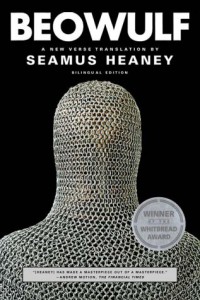 The opening line ‘Listen!’ is not a proclamation and should not have an exclamation mark, according to new research by an academic at the University of Manchester.
The opening line ‘Listen!’ is not a proclamation and should not have an exclamation mark, according to new research by an academic at the University of Manchester.
It is perhaps the most important word in one of the greatest and most famous sentences in the history of the English language.
Yet for more than two centuries “hwæt” has been misrepresented as an attention-grabbing latter-day “yo!” designed to capture the interest of its intended Anglo-Saxon audience urging them to sit down and listen up to the exploits of the heroic monster-slayer Beowulf.
According to an academic at the University of Manchester, however, the accepted definition of the opening line of the epic poem – including the most recent translation by the late Seamus Heaney – has been subtly wide of the mark.
In a new paper, Dr George Walkden argues that the use of the interrogative pronoun “hwæt” (rhymes with cat) means the first line is not a standalone command but informs the wider exclamatory nature of the sentence which was written by an unknown poet between 1,200 and 1,300 years ago.
According to the historical linguist, rather than reading: “Listen! We have heard of the might of the kings” the Old English of “Hwæt! We Gar-Dena in gear-dagum, þeod-cyninga, þrym gefrunon, hu ða æþelingas ellen fremedon!” should instead be understood as: “How we have heard of the might of the kings.”
Dr Walkden said his conclusion – based on the positioning of the word relative to the verb within 141 other clauses studied – would put him at odds with the conventional wisdom on the subject.
“I’d like to say that the interpretation I have put forward should be taken into account by future translations,” he said.
Bootnote: In another, follow-up article, author Claire Kelley points out that “while Walkden and the University of Manchester quote Seamus Heaney as having using an exclamation point mark (The Independent repeats the error), Heaney actually just used a period, choosing to use the word “So.” as more of a transition word that is meant to mimic Anglo-Saxton diction and indicate the continuation of the conversation.” Cue a storm of argument from the Anglo-Saxonists?


